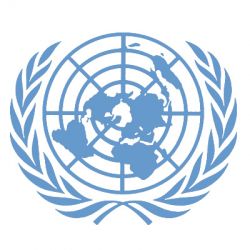The UN Human Rights Council has appointed a three member independent commission in accordance with their resolution of February 25, 2011, to report on potential abuses [1]. The Commission is composed of Cherif Bassiouni, expert in international criminal law and Professor Emeritus of Law at DePaul University in Chicago, Asma Khader, human rights activist and founder of the Mizan Law Group for Human Rights in Jordan, and Philippe Kirsch, former judge and president of the ICC [2]. The Commission will report their findings, identifying violations and those potentially responsible for the violations and making recommendations for accountability to the commission in June [3]. The Council called on Libya to cooperate fully with the Commission and to ensure human rights for its citizens including ceasing hostilities directed at civilians, allowing access to media and internet, and facilitating foreign nationals to provide humanitarian assistance [4].
Another part of the international response to the situation in Libya is the referral to the ICC [5]. On 26 February, the UN Security Council unanimously decided to refer the situation to the ICC [6]. They too called on Libya to cooperate with any investigation and to suspend various abuses [7].The same resolution outlines an arms embargo, travel ban for certain individuals, and an asset freeze for listed individuals or entities annexed to the resolution [8].
Poles and other Europeans aboard may be subject to such violations as the situation in Lybia deteriorates. Although warnings to leave have been given out, many have chosen to remain [9]. The Polish Embassy was officially closed on 3 March, cutting off an important resource for Europeans [10]. The Embassy, however, has advised that the Hungarian and Italian embassies are on full duty, available to help Europeans through the coming times.
[1] http://www.ohchr.org/EN/NewsEvents/Pages/DisplayNews.aspx?NewsID=10841&LangID=E
[2] http://www.ohchr.org/EN/NewsEvents/Pages/DisplayNews.aspx?NewsID=10841&LangID=E
[3] http://www.ohchr.org/EN/NewsEvents/Pages/DisplayNews.aspx?NewsID=10841&LangID=E
[4] Resolution adopted by the Human Rights Council S-15/1. Situation of human rights in the Libyan Arab Jamahiriya, A/HRC/RES/S-15/1, Human Rights Council, 15th special session, 25 February 2011.
[5] Security Council Resolution 1970 (2011) adopted by the security council at its 6491st meeting, on 26 February 2011, S/RES/1970 (2011), available at http://daccess-dds-ny.un.org/doc/UNDOC/GEN/N11/245/58/PDF/N1124558.pdf?OpenElement
[6] Security Council Resolution 1970 (2011) adopted by the security council at its 6491st meeting, on 26 February 2011, S/RES/1970 (2011), available at http://daccess-dds-ny.un.org/doc/UNDOC/GEN/N11/245/58/PDF/N1124558.pdf?OpenElement
[7] Security Council Resolution 1970 (2011) adopted by the security council at its 6491st meeting, on 26 February 2011, S/RES/1970 (2011), available at http://daccess-dds-ny.un.org/doc/UNDOC/GEN/N11/245/58/PDF/N1124558.pdf?OpenElement.
[8] http://thenews.pl/international/artykul150557_poland-closes-embassy-in-libya.html
[9] http://thenews.pl/international/artykul150557_poland-closes-embassy-in-libya.html.
[10] http://thenews.pl/international/artykul150557_poland-closes-embassy-in-libya.html
*Laura Heft – a volounteer at the Helsinki Foundation for Human Rights





